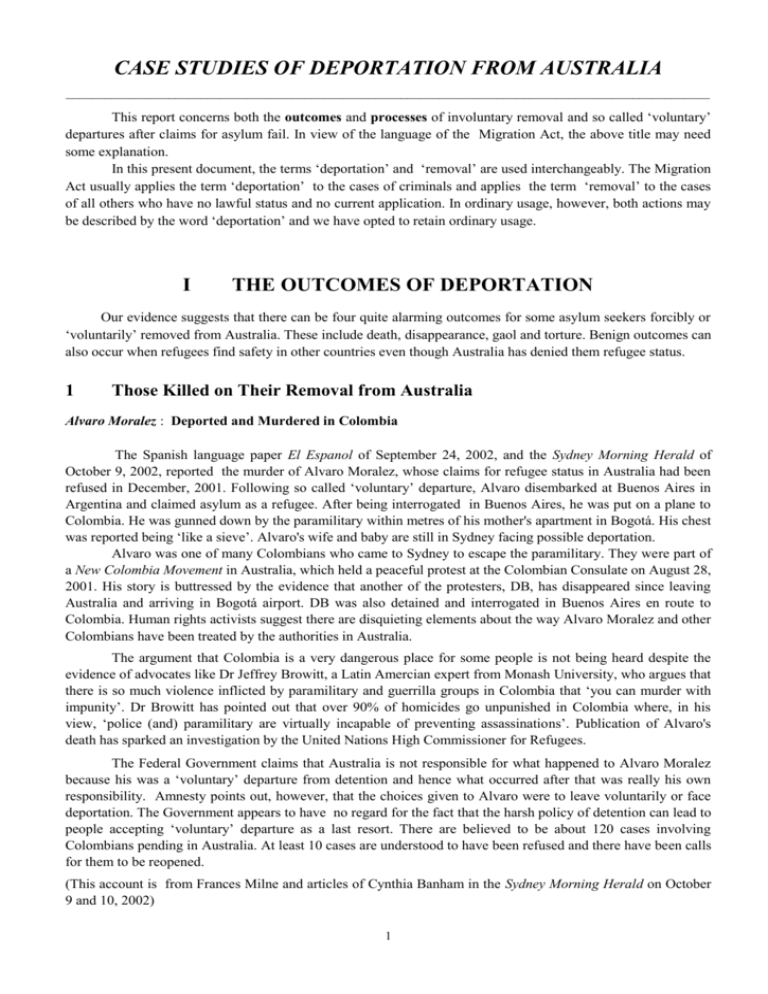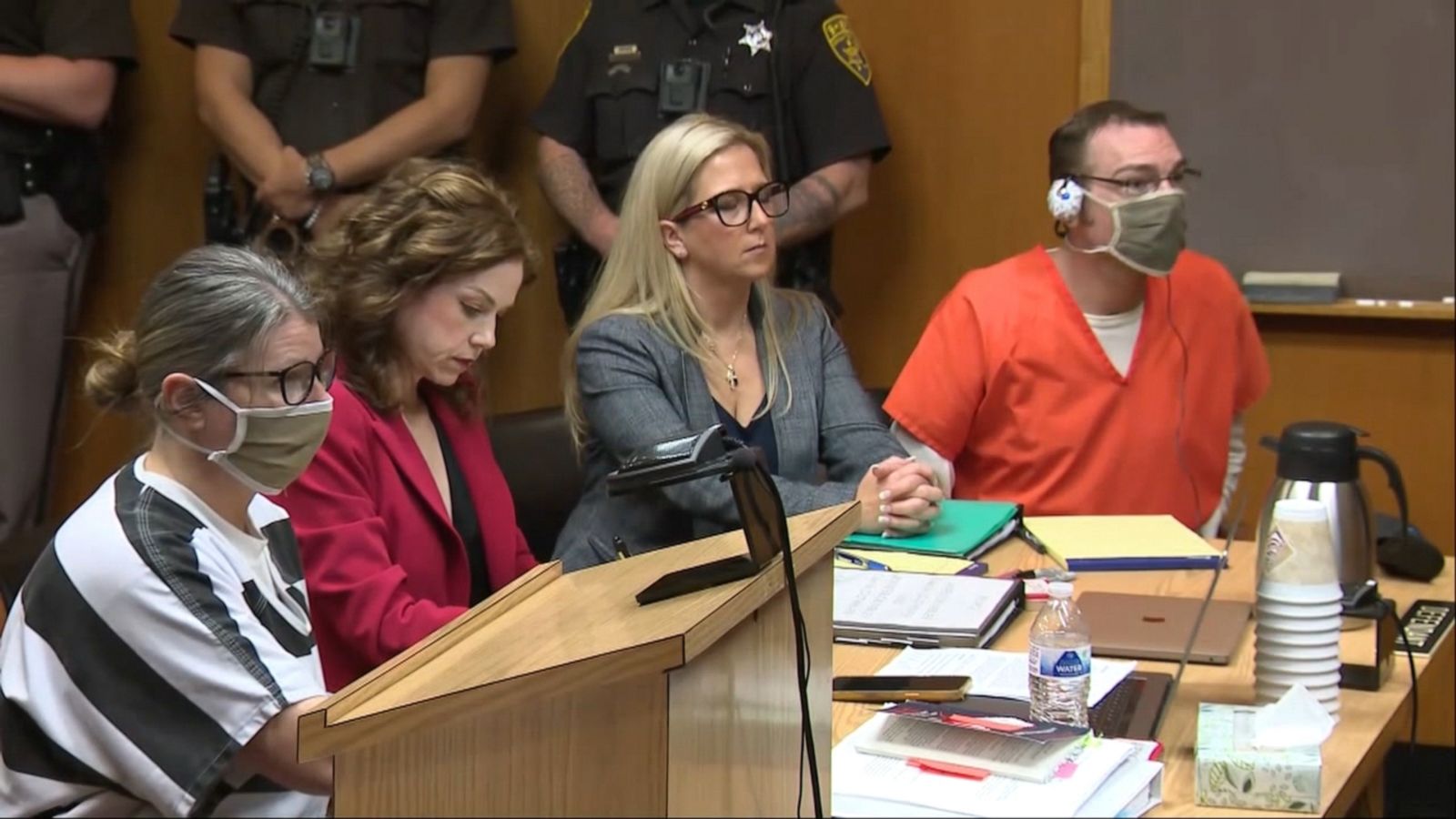Deportation Case Of Harvard Researcher Headed To Louisiana Court

Table of Contents
The Researcher's Background and Contributions
Dr. Anya Sharma, a renowned astrophysicist, has been a vital member of the Harvard University faculty for the past decade. Her specialization lies in the study of dark matter and its implications for cosmology. Dr. Sharma’s contributions to the field have been nothing short of groundbreaking. Her research has garnered international recognition, leading to significant advancements in our understanding of the universe.
- Specific research achievements: Dr. Sharma has published numerous articles in leading scientific journals, holds several patents related to advanced telescope technology, and has secured substantial research grants from NASA and the National Science Foundation.
- Recognition and awards: She has received prestigious awards, including the American Astronomical Society's Annie Jump Cannon Award and the prestigious Guggenheim Fellowship.
- Importance of her work: Dr. Sharma's work has significantly impacted our understanding of dark matter, a field crucial for advancing cosmology and astrophysics. Her innovative techniques have paved the way for new discoveries and collaborations.
Details of the Deportation Case
The deportation proceedings against Dr. Sharma stem from an alleged violation of her visa terms. Specifically, the government alleges a discrepancy in her employment authorization, leading to the initiation of deportation proceedings. The case has been marked by a series of legal challenges and appeals, with the Louisiana court case representing the latest stage in this ongoing legal battle.
- Type of visa: Dr. Sharma held an H-1B visa, a common visa for specialized workers in the US.
- Specific immigration laws involved: The case involves interpretations of the Immigration and Nationality Act (INA), focusing on sections related to visa violations and potential waivers.
- Key dates and events: The initial notice of violation was issued in 2022, followed by several hearings and appeals before the case reached the Louisiana court.
Arguments Presented by the Defense
Dr. Sharma's legal defense centers on her exceptional contributions to American science and the national interest. The defense argues that her deportation would be detrimental to the US, given her unique expertise and ongoing research projects. Harvard University has provided substantial support, highlighting the detrimental impact of her removal on the university's research programs and reputation.
- Arguments based on national interest: The defense emphasizes the significant contributions of Dr. Sharma's research to national security and scientific advancement.
- Evidence presented: The defense has presented extensive evidence of Dr. Sharma's publications, patents, grant funding, and awards to substantiate her claims of exceptional ability and contribution.
- Role of Harvard's legal team: Harvard University's legal team is actively involved in the defense, providing substantial resources and legal expertise to support Dr. Sharma's case.
Potential Outcomes and Implications
The Louisiana court case could result in several outcomes, including deportation, a stay of deportation, or other legal resolutions. Regardless of the specific outcome, the case carries significant implications for US immigration policy, academic freedom, and the recruitment of international talent.
- Possible outcomes: Deportation would represent a significant loss for the US scientific community, while a stay of deportation or other favorable outcome could set a precedent for future cases.
- Impact on Harvard's reputation: The case has already impacted Harvard's reputation, raising concerns about its ability to attract and retain top international researchers.
- Wider implications for US immigration policy: This case highlights the need for a more nuanced and streamlined immigration process for highly skilled workers, particularly those contributing to vital research areas. The case could trigger a reevaluation of policies related to H-1B visas and other avenues for skilled immigration.
Conclusion
The Harvard researcher deportation case of Dr. Anya Sharma serves as a critical examination of the intersection of immigration law and academic excellence. The outcome of the Louisiana court case will have far-reaching consequences, not only for Dr. Sharma but also for the broader scientific community and US immigration policy. Understanding the intricacies of this case allows us to engage in a critical discussion about the value of international talent and the need for fair and equitable immigration processes. Stay informed about updates on this significant legal battle and advocate for policies that support the contributions of highly skilled individuals to American society. Follow this case and others like it to stay abreast of the evolving landscape of immigration law and its impact on vital research endeavors. The fight against unjust Harvard researcher deportation cases must continue.

Featured Posts
-
 Hollywood Production Grinds To Halt As Actors And Writers Strike
Apr 28, 2025
Hollywood Production Grinds To Halt As Actors And Writers Strike
Apr 28, 2025 -
 The Difficult Transition Laid Off Federal Workers Seeking State And Local Positions
Apr 28, 2025
The Difficult Transition Laid Off Federal Workers Seeking State And Local Positions
Apr 28, 2025 -
 Teslas Rise Lifts Us Stocks Tech Giants Power Market Growth
Apr 28, 2025
Teslas Rise Lifts Us Stocks Tech Giants Power Market Growth
Apr 28, 2025 -
 Lab Owners Guilty Plea Faked Covid 19 Test Results During Pandemic
Apr 28, 2025
Lab Owners Guilty Plea Faked Covid 19 Test Results During Pandemic
Apr 28, 2025 -
 Deportation Case Of Harvard Researcher Headed To Louisiana Court
Apr 28, 2025
Deportation Case Of Harvard Researcher Headed To Louisiana Court
Apr 28, 2025
Latest Posts
-
 Red Soxs Shifting Lineup Impact Of Outfielders Return And Casas Lowered Spot
Apr 28, 2025
Red Soxs Shifting Lineup Impact Of Outfielders Return And Casas Lowered Spot
Apr 28, 2025 -
 Analysis Red Sox Lineup Changes Following Outfielders Return And Casas Demotion
Apr 28, 2025
Analysis Red Sox Lineup Changes Following Outfielders Return And Casas Demotion
Apr 28, 2025 -
 Updated Red Sox Lineup Casas Position Change And Outfielders Reinstatement
Apr 28, 2025
Updated Red Sox Lineup Casas Position Change And Outfielders Reinstatement
Apr 28, 2025 -
 Red Sox Lineup Outfielder Returns Casas Moves Down In The Order
Apr 28, 2025
Red Sox Lineup Outfielder Returns Casas Moves Down In The Order
Apr 28, 2025 -
 Triston Casas Continued Slide Red Sox Lineup Adjustment And Outfielders Return
Apr 28, 2025
Triston Casas Continued Slide Red Sox Lineup Adjustment And Outfielders Return
Apr 28, 2025
